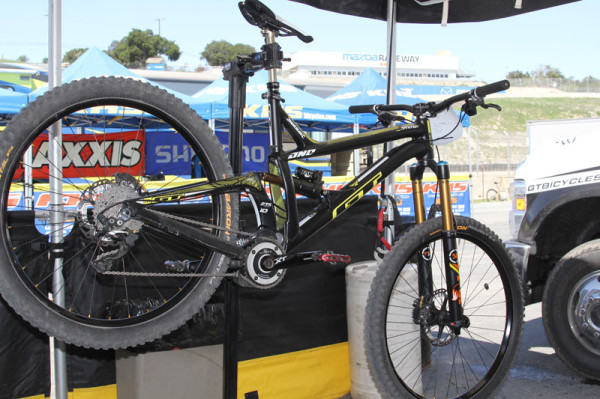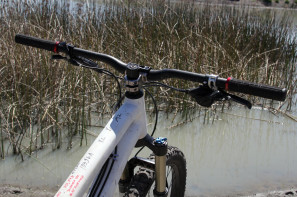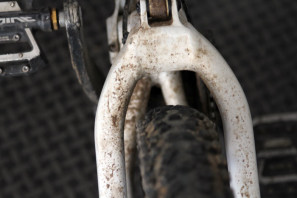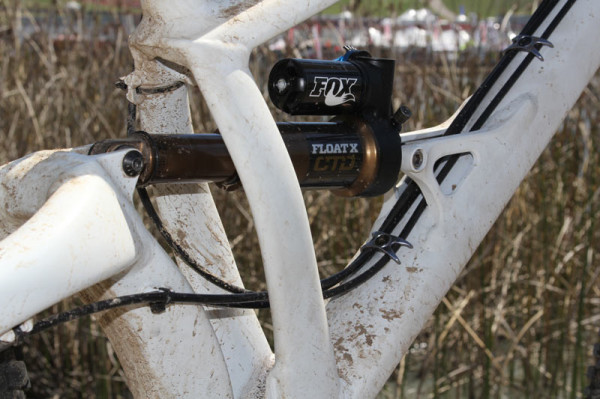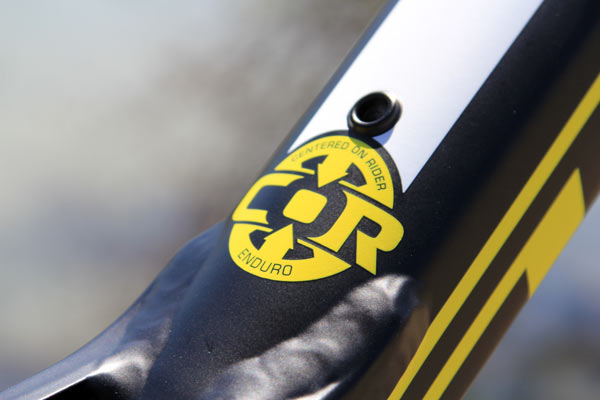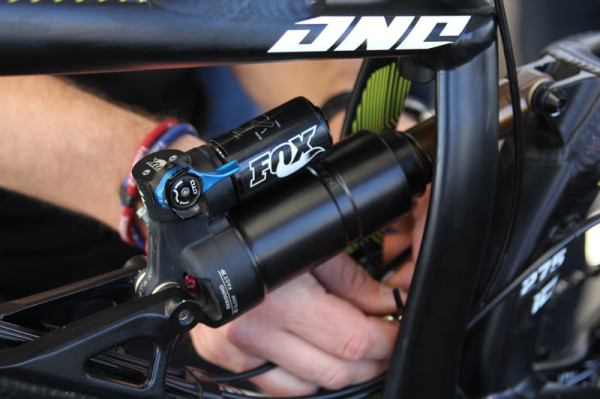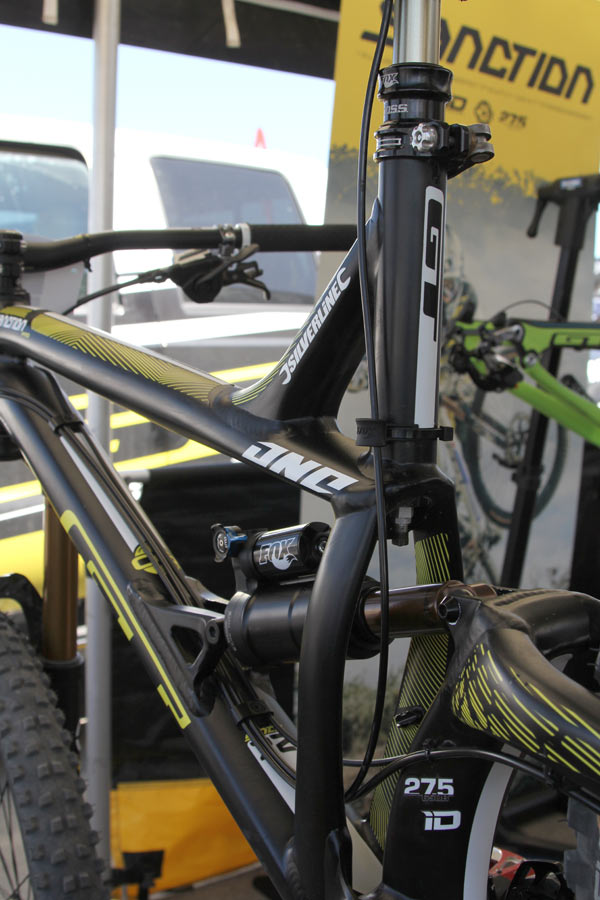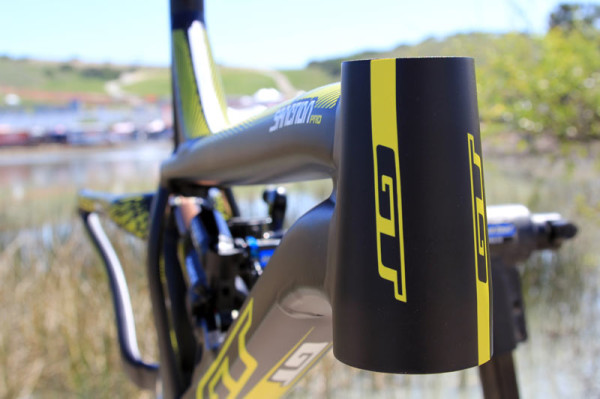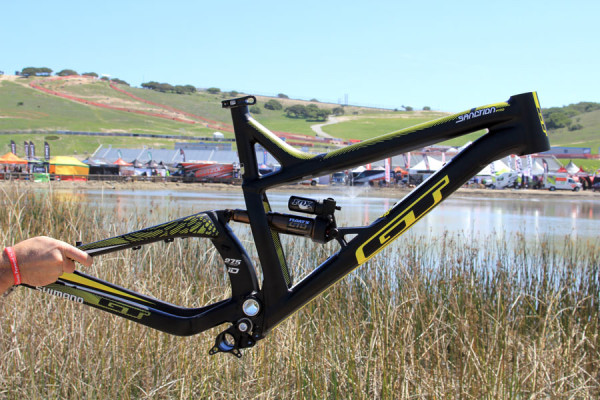Teased in a video a few days ago, the all new GT Sanction has been redesigned from the ground up to be a weapon on the Enduro scene. The bike has been in development for over a year now, taking a lot of input from the Athertons, and borrows heavily from both the World Champ winning Fury DH bike and popular new Sensor and Force platforms.
We interviewed Engineer/Designer Etienne Warnery, Global Marketing Manager Chris Hopwood, and PR Manager Bill Rudell about the development and testing process behind the new bicycle.
Jump past the break to see why it shreds…
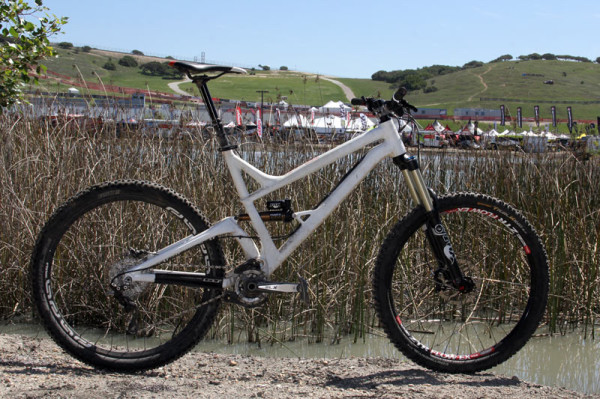
A few years ago, the Atherton racing team made the jump from Commencal Bikes to GT. While they really liked the original carbon Force DH bike, they wanted to make some changes to the platform to better reflect the rigors of modern downhill tracks. In doing so, they created an incredibly successful new platform that nearly clinched both sets of World Cup Stripes last year.
It was during that process that GT began developing their new “centered on rider” geometry, which keeps riders better centered in the middle of the bike when descending by increasing the reach. This approach to geometry is part of a growing new trend in the industry and is central to the handling characteristics of not just the GT Fury Downhill bike, but the new Sensor and Force. As a result, this new model is designed around a 35mm stem, and demands an aggressive rider to maximize it’s potential.
The new Sanction slots between the two very distinct product categories in the GT line up. It borrows it’s I-Drive (I.D.) Gravity suspension platform from the downhill bruiser, but has been modified to be more pedaling efficient. As Etienne explained, the Fury was designed to be a race bike, which requires pedaling through rock gardens in order to cut every last second off the clock. Therefore the suspension is incredibly active for better pedaling traction. While you still want that plush feel on the Enduro segment, those types of races still require you to pedal uphill, so the Sanction has more anti-bob built in.
What this translates to on the trail is a bike that blows through the chunder and is an efficient enough climber. The trade off is that it does not exhibit the incredible pedaling efficiency of the more trail oriented Sensor and Force models, so GT will be spec’n a Fox Float X shock with a remote on complete bikes. It’s been custom tuned with a progressive ramp to prevent harsh bottom out at the end without giving up small bump sensitivity off the top.
To make the bike more pedaling friendly uphill, the Sanction was also designed with a fairly steep seatube angle. This keeps the rider balanced better over the BB when climbing uphill.
Here are the basic numbers:
- 165mm rear wheel travel
- Yes, it’s made for 27.5″ wheels (650B!)
- 66º head angle
- 74º seat angle
- Single chainring specific
The most important part of the design process was suspension performance, so once the pivot points were marked out, the frame was developed using GT’s new industrial language. On the aluminum frames, this means box/circle tubes that the marketing team has affectionately dubbed the scquirkle.
One of the advantages of this pivots first, frame later design is the low standover height the company was able to achieve. The white bike we photographed is one of two prototype mules in existence and is an XL. Despite being large enough for Etienne (who is over 6 ft), I was still able to step over the frame with plenty of clearance even though I’m only 5’8. This bodes well for small riders, as the stand over height will vary only by a few mm’s through out the size S-XL frames that GT plans on offering.
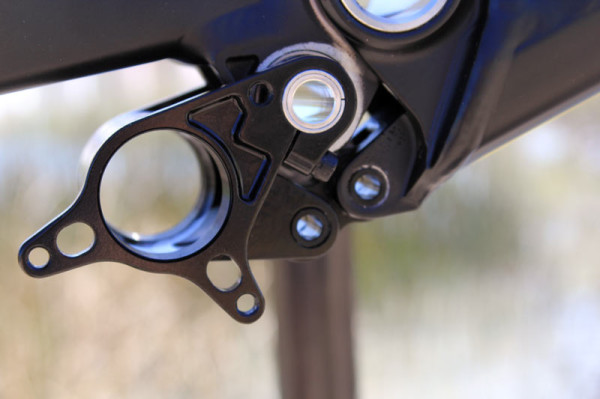
The I-Drive Gravity system is quite a bit different than the Pathlink driven system on the more XC/Trail oriented Sensor/Force bikes. Here, the rear triangle directly drives the shock’s compression. It’s very much like the Fury, just without the upper support linkage. The idea is to separate suspension and pedaling forces in both directions – as in, suspension doesn’t pull the chain and pedaling doesn’t affect suspension.
The frame itself is designed around a 160mm to 180mm fork and will carry a limited lifetime warranty, which is similar to the one currently offered by Cannondale. The prototype bike we photographed was put on the testing jig and was subjected to the equivalent of 10 years of riding abuse in the BB area and is still being ridden without issue. Despite those positive results, GT still went the added mile of beefing up the aluminum tube set, in order to ensure frame longevity under the worlds burliest riders.
Cable routing is similar to the Fury, with routing being down over the top of the downtube. There is no provision for a front derailleur and no real option for stealth routing.
We don’t have official word on pricing because final spec has yet to be announced, but more information will be announced at Press Camp in June. Availability is slated for Sept/October and frame weight should be around 3125g (6.89lb) with shock and hardware.
